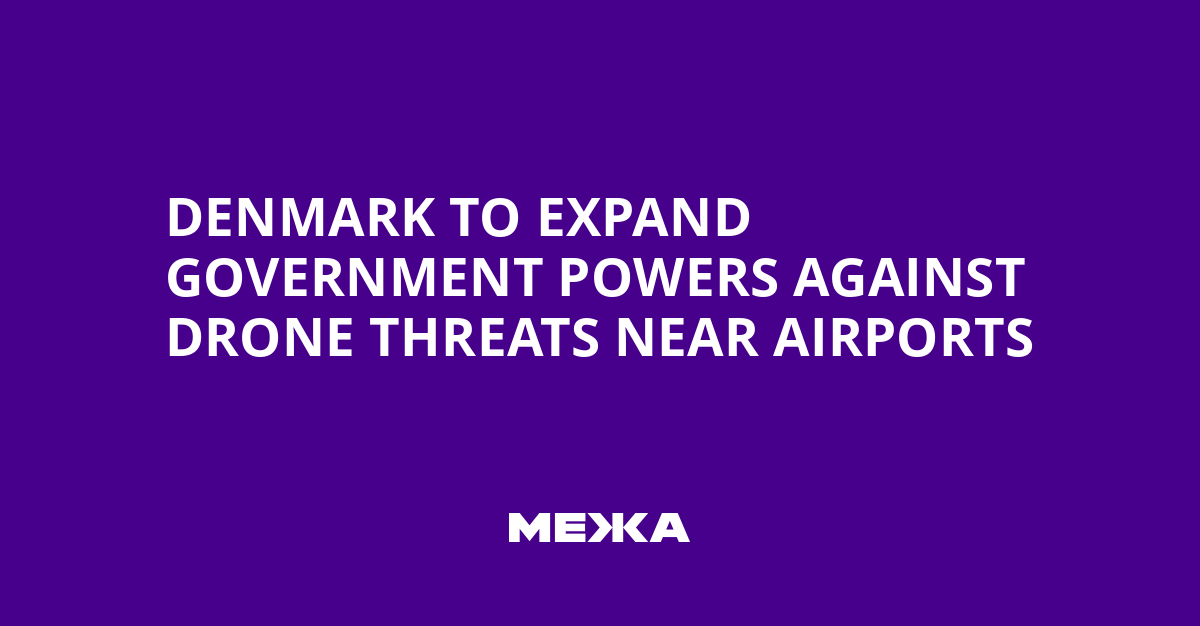The Danish government is working on a bill that significantly expands the powers of government agencies to neutralize drones after a series of nighttime incidents over airports and military bases. The document aims to strengthen airspace control and develop mechanisms to counter hybrid threats. As of September 2025, these steps are becoming increasingly relevant.
The initiative was announced by Justice Minister Soren Pape Poulsen in an interview with the Danish public broadcaster DR. According to him, drones were detected overnight near Aalborg, Esbjerg, and Sønderborg airports, as well as at Skrydstrup Air Base. Because of this, Aalborg Airport was closed for several hours, and air traffic suffered significant disruptions.
The ministries of justice and transport are developing a model for stricter airspace regulation and tools to counter hybrid attacks. Regulations governing the operation and registration of larger drones and the ability to neutralize them are expected to be introduced.
“The aim of this kind of hybrid attack is to create fear. It is designed to make us afraid. We must acknowledge that the era when anyone could freely and without registration launch larger drones into the air around Denmark has passed”
– DR
According to officials, these events are part of a long-running series of threats to Europe’s critical infrastructure, including cyberattacks and drone incursions into airspace. In this regard, authorities say there is a need to provide clear tools for rapid response to threats and to broaden the powers to regulate the use of unmanned aircraft.
The formal submission of the bill is expected in the near future, DR reports.
Key Aspects of the Proposed Legislation
It is expected that the document will define the framework for launching and registering larger drones, establish requirements for neutralization technologies, and outline the responsibilities for using unmanned aircraft near critical infrastructure.
The government emphasizes the need to strengthen coordination between justice, transport and security services at national and regional levels to rapidly neutralize threats.
After the bill passes, the country expects more rapid responses to incidents involving drones and stronger security for critical facilities.
This step demonstrates Denmark’s commitment to tailoring drone regulations to rising risks while preserving a balance between the convenience of civilian use and robust airspace protection.
